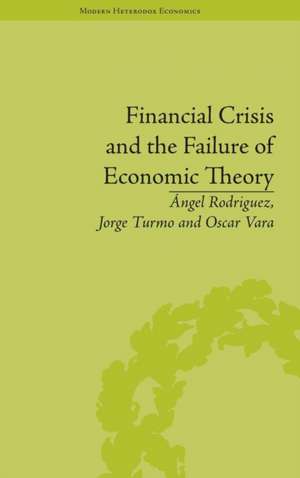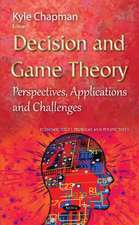Financial Crisis and the Failure of Economic Theory: Modern Heterodox Economics
Autor Jorge Turmo Arnalen Limba Engleză Hardback – oct 2014
| Toate formatele și edițiile | Preț | Express |
|---|---|---|
| Paperback (1) | 177.43 lei 6-8 săpt. | |
| Taylor & Francis – 30 sep 2020 | 177.43 lei 6-8 săpt. | |
| Hardback (1) | 697.34 lei 6-8 săpt. | |
| Taylor & Francis – oct 2014 | 697.34 lei 6-8 săpt. |
Preț: 697.34 lei
Preț vechi: 820.40 lei
-15% Nou
Puncte Express: 1046
Preț estimativ în valută:
133.43€ • 139.32$ • 110.43£
133.43€ • 139.32$ • 110.43£
Carte tipărită la comandă
Livrare economică 04-18 aprilie
Preluare comenzi: 021 569.72.76
Specificații
ISBN-13: 9781848935150
ISBN-10: 1848935153
Pagini: 208
Dimensiuni: 156 x 234 x 21 mm
Greutate: 0.47 kg
Ediția:1
Editura: Taylor & Francis
Colecția Routledge
Seria Modern Heterodox Economics
Locul publicării:Oxford, United Kingdom
ISBN-10: 1848935153
Pagini: 208
Dimensiuni: 156 x 234 x 21 mm
Greutate: 0.47 kg
Ediția:1
Editura: Taylor & Francis
Colecția Routledge
Seria Modern Heterodox Economics
Locul publicării:Oxford, United Kingdom
Cuprins
Introduction 1. The Financial Crisis and Modern Economics: From Surprise to Puzzlement 2. A Different Look to Economic Theory: The Anthropological Approach 3. The 'Building Blocks' of Modern Economics: We Do Really Need a Meta-Theory 4. The Meta-Theory at Work: A Case Study in Growth Theory and Real Business Cycle Theory 5. Governments and the Financial Crisis: Making Economic Policy in the Dark 6. Explaining More Complex Phenomena: The Financial System Final Remarks
Notă biografică
Ãngel Rodriguez, Autonomous University of Madrid
Jorge Turmo Arnal, Autonomous University of Madrid
Oscar Vara Crespo, Autonomous University of Madrid
Jorge Turmo Arnal, Autonomous University of Madrid
Oscar Vara Crespo, Autonomous University of Madrid
Descriere
The global financial crisis of 2008 was largely unpredicted. If economic theory has a role to play in predicting future catastrophes then the methods we rely on need to change. The authors of this study propose a new theory of economics based on more detailed understanding of how and why people behave as they do within their environment. This anthropological approach uses the strengths of many existing economic theories, including Keynesian and Austrian economics, to present a new framework for anticipating and averting the financial crises of the future.














